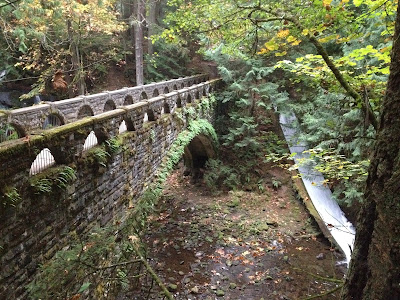Quick Thoughts: What is Lance on? He's on the trails.
-->
“What am I on? I’m on my bike, busting
my ass six hours a day. What are you on?”
Lance ran a 35k race this weekend at
the Woodside Ramble, organized by Inside Trail Racing. Here are a few quick thoughts
provoked by Lance’s run and the ensuing internet chatter (see here, here, and here). As you can see below I started thinking about doping and then started hunting bigger game: why is our sport so broken? Full disclosure: I am on Inside Trail Racing’s 2016 team of racing
ambassadors. I received an informal
invitation to run the race but declined.
1) “It can’t happen here.”
If I had
been in the position of the Inside Trail organizers, I would not have let Lance
run in my race. I understand their perspective: “He’s another entrant, there
was no money on the line, etc.” So I am not terribly offended by ITR’s decision
to let Lance run. But I am troubled by it. There is,
currently, no way to stop doping from happening in trail running. For all you
know, I myself have cheated to every single one of my victories at a trail races over
the last 6 years (it is a lot). I have never been tested, I have never been questioned about doping since my days in the NCAA.
This includes 6 top-ten placements at USATF trail championships, one as recent as this October. I am certain
there are people in the world, probably folks enjoying the semi-celebrity of trail running
success, who are currently cheating. Systematic testing, itself no real panacea to a larger cultural problem, appears currently unfeasible in trail races because of the cost. My
worry is that if we create an atmosphere that is tolerant or lenient toward dopers, it will become easier to rationalize cheating. The absence of prize money as a justification seems nebulous to me. I understand that ITR is not UTMB or Western, but we should try to create clear lines of acceptable behavior within an admittedly blurry ethical context. People will certainly cheat for more than just money; reference Christian Hesch. This being the case, I generally agree with Ian Sharman's thoughts on iRunFar, which I came across while I was proofing this. In Lance's case, I could certainly be wrong in my thinking. I think this is an open debate. I certainly look forward to chatting with ITR race organizers over beer about this. What are your thoughts?
2) Lance highlights the real tension
within trail running as a “sport.”
Competitive running is mostly moribund as a sport, having devolved into a mass-market pay-for-entry affair. In the world of running,
a race entry can cost into the hundreds of dollars, causing the subjective experience
of a running event to be more important than the race itself. For ITR, one bad Yelp review is infinitely worse than the race for the win lacking any sort of drama. I understand (and accept) the
fiscal incentives behind this: my money to run 6 minute pace in the hills is no
better than the money of someone who runs 12 minute pace in the hills. So, why the hell shouldn't Lance be able to pay to do a supported run in the tony hills of Woodside? However, we are trying to have our cake and eat it too: trail running is both a mass participation "festival" event and an actual sporting event. Both events usually (and weirdly) share the same starting line and lead to difficult questions that an organization like the PAUSATF would never even consider. If we think that it is ok to let in a man who
cheated his way to victory seven times at the greatest endurance race on the
planet because his money is the same as anyone else’s, well okay, I guess. But
then the legitimacy of trail running as a sport is certainly up for continued debate.
3) The issues of competitive running’s
devolution into pay-per-run festival is especially true in trail running.
Trail running came into its own in the
last 6-7 years within an increasingly privatized race environment. There are few
organic races in trail running (Dipsea, Western) and those are now nigh
impossible to get into in any given year. (But, if you are in the East Bay check out the Triple Crown challenge next summer.)
3a) Additionally, there are few
non-market incentives toward developing “trail running” talent. There is no
natural feeder from the NCAA—though the iRunFar coverage and Nike sponsorship of the US MTN champs was a great step in the right direction. I think that the current trail running "competitive turn" has less to do with a pull towards the sport, as it is a push away from road marathoning with the raising of the Olympic
marathon trials standards. Up until last week, the time requirements excluded all but the truly rarefied
running talent.
3b) Worse still, there is little
likelihood of doping anxieties being mitigated by a movement toward organizational governance, given
American skepticism toward any governing body at the moment. There is surely a
correlation between the skepticism toward organizing sport bodies like USATF and the
cynicism toward government more generally in the wake of Washington’s takeover
by militant Republican ideologues. Additionally, generalized skepticism toward organizational reform—still the best solution to doping in endurance running—is likely exacerbated by trail running’s
gravitational and institutional proximity to the plutocratic libertarianism of Silicon
Valley.
4) The sport of running should be about
people… people racing.
Eric Eagon suggests, “our sport is about relationships. It’s about people.” True, but me hanging out with some bros playing Halo over beer is not sport. I’m all
for community, and work each week to encourage folks in the East Bay to attend local runs, but I would also love to turn on my TV every Sunday and watch a cross
country race instead of the NFL. Community is a necessary part of
sport, but it is not sport in and of itself. So we should work to build communities that also facilitate the creation of excellence.
5) We need to rebuild the spectacle of
running.
Running is dead. Can you name who
finished 2nd at this year's Women’s NCAA Cross Championships? No? Me
neither; I had to check Letsrun to refresh my memory and I watched the damn
race live. Last Saturday I stood with hundreds of people watching Club Cross Country
Nationals in Golden Gate Park. It was awesome. But nearly all of us had friends
in the race, and I would guess the number of disinterested spectators to be in
the dozens, if not fewer. Moving forward we need to rebuild the sport back into something that draws non-runner eyeballs. But how to do so?
5a) Some idealistic off-the-cuff ideas: i. We need to work with sponsors and race groups like ITR and Brazen
Racing in their efforts to develop organic races. ii. There should be at least one or two USATF
MUT running championship near major urban centers like San Francisco, Seattle, Denver, or LA. (I'm selfishly interested in an “up year” mountain championship on
Mt. Diablo, which has featured Tour of California summit finishes.) iii. There should be team scoring
at major marathons and ultra-marathons. iv. Big races should feature in-race
premiums to create more drama in the race for the casual viewer. v. We should stop using drones to kill people in
Syria, and start using them to film trail races. vi. Why the hell is there not an
Ekiden in the US? vii. More races should try to emulate the local idiosyncrasies of
the Dipsea, using local terrain and roads to create non-traditional race
courses. viii. People love beer; Lewis Kent was on Ellen. Beer meshes (sort of) well with running, so why fight it? ix. In general we need to create agglomerations out of niche markets (trail, road, ultra, track). Bring more eyeballs and you bring more money. Bring more money and you start to have revenue streams outside of race entries.
6) Finally, we need to support the
professional journalists who keep the sport honest.
History has shown that organizing sport governments,
sponsors, and athletes will bend and break the rules unless free and
disinterested journalists are willing to investigate and hold feet to the fire.
The BBC/Propublica expose on the Salazar group and the steady journalistic
pressure that led to the IAAF ban on Russia are topical examples. As
journalists’ income continues to switch toward a contract labor model (goodbye, Running Times; hello, Medium), we can at least signal our continual interest
in the sport by supporting local running journalists. Need a place to start?
Sign up for Mario Fraioli’s Morning Shakeout for good (and quick) takes on the world
of running.
7) Lance provides an opportunity for a conversation.
How do we police cheating? Is it a cultural problem? An organizational issue? Funding issue? Do we even care? We should stay civil, even in disagreement, even on the Internet. If Lance would like to run the MUT stuff, I
would love to ask him (or hear him be asked) hard questions about doping at
a forum at SFRC or Sports Basement or Transports or on UltraRunnerPodcast.
Anyway. Just some quick thoughts. Lance reveals big
problems that require sustained and laborious effort… but I also need
to finish my dissertation. Cheers and see you on the trails.




Hi Sam, Justin here. I talked to you once when you called Transports. Good writeup. I also wonder why professional running is so unpopular even though running is the most popular participant sport in America.
ReplyDeleteOn Lance: I think it's okay for Lance to participate in the Woodside Scramble. Your objection is: Lance doped, hence Lance would taint trail running and encourage doping.
Yes, Lance did dope. Yes, Lance does poison everything associated with him - that's why triathlon and swimming banned him. I'm not convinced that Lance would encourage doping in trail runners, we can only speculate.
My reason for allowing Lance: forgiveness. Lance was punished. His Tour de France title were stripped away.
I think the crux of the Lance question is: what is a just and fair punishment against Lance for damaging the reputation of endurance sports? Some people still want to punish Lance, they believe stripping his titles and sponsorships were not enough. Some people think Lance was properly punished, any more punishment is vindictive.
Hi Justin, Thanks for the comment. I'm not too interested in Lance per say, but rather how his involvement shines a spotlight on other structural issues facing running in addition to doping. But, I think everyone can agree that Lance is a special case; he's an infamous example of a redemption story gone bizarro. So his history calls attention in a way that is unique amongst cheaters.
DeleteI'm all for forgiveness. But I'm not sure that forgiveness needs to mean Lance should be able to participate in endurance sporting events, or why excluding him is vindictive. We might forgive someone for committing a murder, but we would not call preventing them from purchasing firearms to be vindictive. Similarly, if a physician egregiously malpractices, he is stripped of his ability to practice medicine. The same goes for lawyers who break the law, professors who abuse their students, and so on for any professional field. To me it does not seem particularly vengeful to tell the arch-cheater of endurance sports, "Sorry. But you just can't do this type of activity any more." In my mind, sport is a privilege, not a right... especially if you are a public figure as Lance is/was.
There are innumerable other ways beyond competitive running, swimming, and cycling for people to find fulfillment in life. But hey, I think this is an open debate. Thanks again for your thoughts. Cheers.